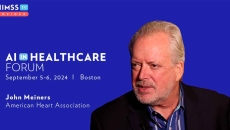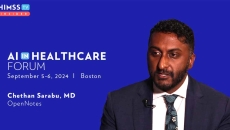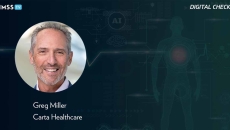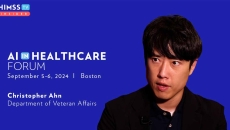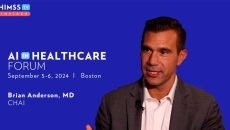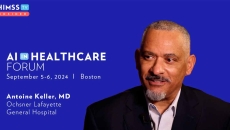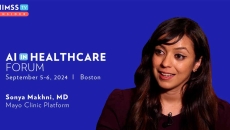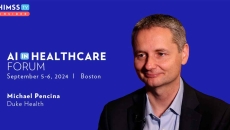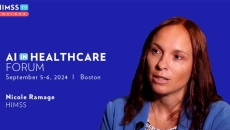clinical AI
AI has the transformational capability to improve the quality of care and impact research, like the manual review of science, says John Meiners, chief of mission-aligned businesses and healthcare solutions for the AHA.
Dr. Chethan Sarabu, AI and informatics strategist at OpenNotes, discusses how genAI and LLMs are enabling a new level of patient empowerment for direct use of AI in their care across a range of tasks, including questions about their diagnosis.
Over the next year health system IT leaders can expect real and pragmatic applications of AI beyond the experimentation mode into real projects with real value, says Greg Miller, vice president of business development at Carta Healthcare.
Christopher Ahn, biomedical engineer supervisor at the U.S. Department of Veteran Affairs, says that for clinicians who use medical devices an AI chatbot could answer questions and offer support, which is more immediate than filing a service ticket.
Dr. Brian Anderson, cofounder and CEO of CHAI, talks about assurance principles and overlaying an AI model's life cycle so that software developers and other stakeholders can consider best practices when deploying AI within healthcare workflows.
Dr. Lukasz Kowalczyk, a physician at Colorado-based Peak Gastroenterology Associates, discusses the need for a multidisciplinary strategy for AI adoption - and building a clinically valuable algorithm while ensuring ethical use.
Cardiothoracic surgeon at Ochsner Lafayette Hospital Dr. Antoine Keller talks about using technology and artificial intelligence to promote access and help the underserved, and details a project that utilizes a portable diagnostic tool.
AI solutions should be safe, fair and adhere to privacy and security, says Dr. Sonya Makhni, medical director at Mayo Clinic Platform. Adoption is only realistic if end users can trust AI performance, so developers need to be transparent.
Michael Pencina, chief data scientist at Duke AI Health, discusses strategic and intentional AI implementation within healthcare systems to ensure correct AI model use, healthcare provider utilization and objective evaluation of AI offerings.
HIMSS senior market insights manager Nicole Ramage discusses new research that explores what executive and IT leaders are saying about the challenges and benefits of using artificial intelligence.
